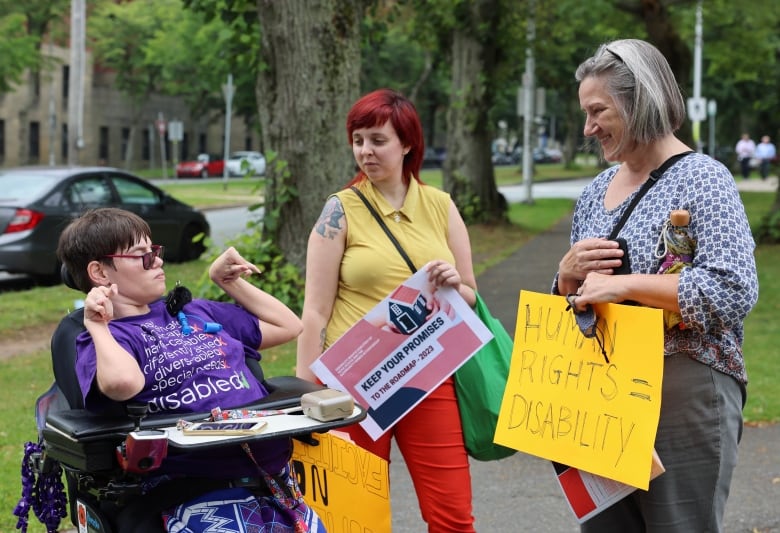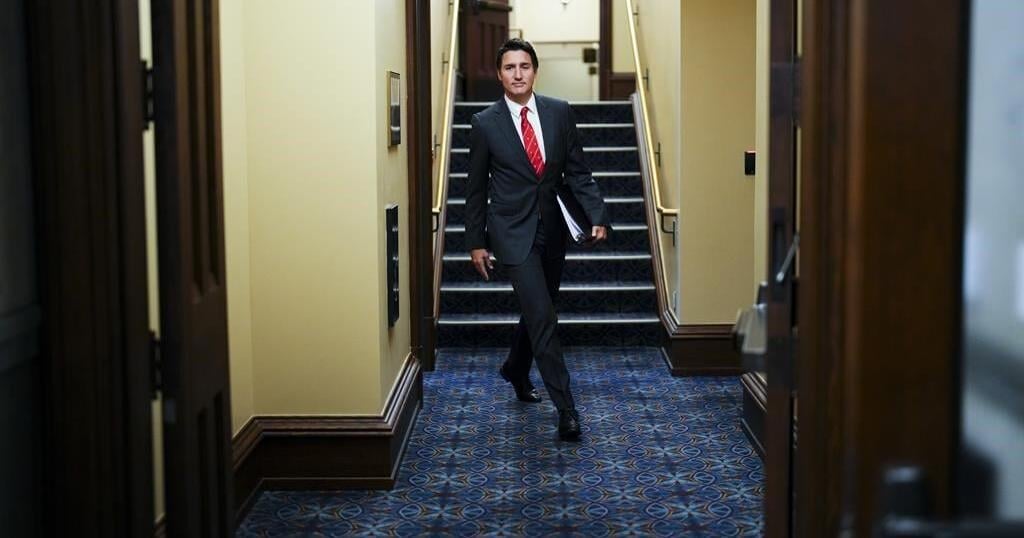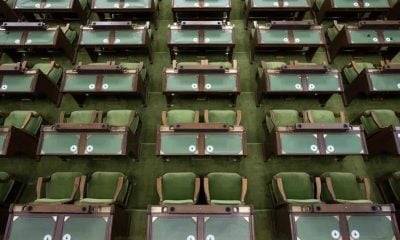OTTAWA – Liberal House leader Karina Gould lambasted Conservative Leader Pierre Poilievre as a “fraudster” this morning after he said the federal carbon price is going to cause a “nuclear winter.”
Gould was speaking just before the House of Commons is set to reopen following the summer break.
“What I heard yesterday from Mr. Poilievre was so over the top, so irresponsible, so immature, and something that only a fraudster would do,” she said from Parliament Hill.
On Sunday Poilievre said increasing the carbon price will cause a “nuclear winter,” painting a dystopian picture of people starving and freezing because they can’t afford food or heat due the carbon price.
He said the Liberals’ obsession with carbon pricing is “an existential threat to our economy and our way of life.”
The carbon price currently adds about 17.6 cents to every litre of gasoline, but that cost is offset by carbon rebates mailed to Canadians every three months. The Parliamentary Budget Office provided analysis that showed eight in 10 households receive more from the rebates than they pay in carbon pricing, though the office also warned that long-term economic effects could harm jobs and wage growth.
Gould accused Poilievre of ignoring the rebates, and refusing to tell Canadians how he would make life more affordable while battling climate change. The Liberals have also accused the Conservatives of dismissing the expertise of more than 200 economists who wrote a letter earlier this year describing the carbon price as the least expensive, most efficient way to lower emissions.
Poilievre is pushing for the other opposition parties to vote the government down and trigger what he calls a “carbon tax election.”
The recent decision by the NDP to break its political pact with the government makes an early election more likely, but there does not seem to be an interest from either the Bloc Québécois or the NDP to have it happen immediately.
Poilievre intends to bring a non-confidence motion against the government as early as this week but would likely need both the Bloc and NDP to support it.
Gould said she has no “crystal ball” over when or how often Poilievre might try to bring down the government
“I know that the end of the supply and confidence agreement makes things a bit different, but really all it does is returns us to a normal minority parliament,” she said. “And that means that we will work case-by-case, legislation-by-legislation with whichever party wants to work with us. I have already been in touch with all of the House leaders in the opposition parties and my job now is to make Parliament work for Canadians.”
She also insisted the government has listened to the concerns raised by Canadians, and received the message when the Liberals lost a Toronto byelection in June in seat the party had held since 1997.
“We certainly got the message from Toronto-St. Paul’s and have spent the summer reflecting on what that means and are coming back to Parliament, I think, very clearly focused on ensuring that Canadians are at the centre of everything that we do moving forward,” she said.
The Liberals are bracing, however, for the possibility of another blow Monday night, in a tight race to hold a Montreal seat in a byelection there. Voters in LaSalle—Émard—Verdun are casting ballots today to replace former justice minister David Lametti, who was removed from cabinet in 2023 and resigned as an MP in January.
The Conservatives and NDP are also in a tight race in Elmwood-Transcona, a Winnipeg seat that has mostly been held by the NDP over the last several decades.
There are several key bills making their way through the legislative process, including the online harms act and the NDP-endorsed pharmacare bill, which is currently in the Senate.
This report by The Canadian Press was first published Sept. 16, 2024.






























